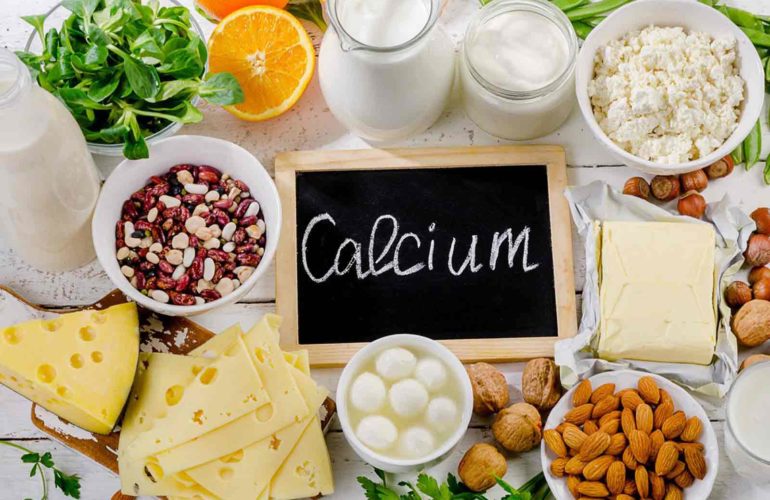Calcium plays a very important role in many basic functions of the body. Your body needs calcium to circulate blood, move muscles and release hormones. Calcium also helps carry messages from your brain to other parts of the body. Calcium is a major part of tooth and bone health as well. It makes your bones dense and strong. If you don’t get enough calcium from your diet, your body will take it from the bones.
Your body doesn’t produce calcium, which means you rely totally on your diet for calcium. Your body needs vitamin D in order to absorb calcium. That means if you’re low vitamin D. you won’t fully benefit from a calcium rich diet. Studies have shown that calcium may ease the early symptoms of PMS. Recommended amount of calcium intake depends totally on your age and body type
Functions of calcium
- Bone and teeth formation
- Blood circulation and blood vessel formation
- Clotting of blood
- Vitamin B12 absorption
- Muscle contraction
- Enzymes activites
- Release of hormones
- Metabolic make up and fat loss
- Carries messages from brain to other body parts
Some important points about calcium
- Our body doesn’t make calcium
- Vitamin D is crucial for absorption of calcium
- Calcium is very important for women
- Excess calcium may lead to constipation, bloating, kidney stones etc
- Only 20-50% calcium from our diet gets absorbed
Reasons for calcium deficiency
- Low calcium diet
- Vitamin D deficiency
- Food intolerances (milk allergy etc)
- Vegan diet
- Medications specially antibiotics
- Nutrients not getting absorbed properly
- Genetic issues
- Growing age
- Hormonal imbalance
- Protein supplements in excess
- Excess caffeine
- Unhealthy gut
Daily calcium requirement
- About 600-800 miligrams for adults (Indian guidelines)
- About 1000 miligrams for adults (World guidelines)
- 1200 miligrams for pregnant women
- 1200 miligrams for lactating mothers
- 1000-1200 miligrams for adults above 50 years of age
Symptoms of calcium deficiency
- Back pain, neck pain
- Pain in bones and joints
- Muscle cramps
- Cracking sound in bones
- Numbness and tickling in fingers
- Weak and brittle nails
- Tiredness and fatigue
- Depression and low mood
- Memory problems and confusion
- Difficulty in swallowing
Important vegetarian food source for calcium
| Food | Measurement | Quantity of calcium |
| Milk | 1 cup | 300 mg |
| Yogurt / dahi | 1 cup | 260 mg |
| Chia seeds | 1 tbsp | 126 mg |
| Sesame seeds | 1 tbsp | 90 mg |
| Almonds | 08 | 40 mg |
| Leafy vegetables | 1 cup | 250 mg |
| Tofu | 1/2 cup | 380 mg |
| Dry figs | 05 | 100 mg |
| Amaranth | 1 cup | 220 mg |
| Ragi | 1 cup | 300 mg |
| Bhindi | 1 cup | 90 mg |
| Orange | 1 medium | 55 mg |
| Rajma / Chole | 1 cup | 230 mg |
| Lentil | 1 cup | 180 mg |
| Soya | 1 cup | 240 mg |
| Raisins | 10 | 12 mg |
| Cumin seeds | 1 tsp | 20 mg |
| Coriander | 1 tsp | 14 mg |
Types of calcium supplements
- Calcium carbonate (40% elemental calcium)
- Less expensive, decent absorption
- Calcium citrate (21 % elemental calcium)
- Well absorbed, more expensive, protection from kidney stones
- Calcium orotate (20.6 % elemental calcium)
- Well absorbed, very expensive. Lesser side effects
- Calcium phosphate (31 % elemental calcium)
- Decent absorption, effect same as calcium carbonate, inexpensive
- Calcium lactate (13 % elemental calcium)
- Good absorption, low content of calcium element, may contain milk
Do not take Iron and Calcium supplements together and avoid taking tea / coffee with it
